Many herbs can improve your overall health. From basil to rosemary, a simple herb can go a long way in boosting one’s well-being. Mint is one such herb that is a simple, small plant that can end up doing quite a lot.
From helping with overall oral health to fighting cancer cells, mint shouldn’t be skipped. If you add mint to your daily diet, you’ll have a higher chance of seeing these great benefits.
Contains Beneficial Nutrients
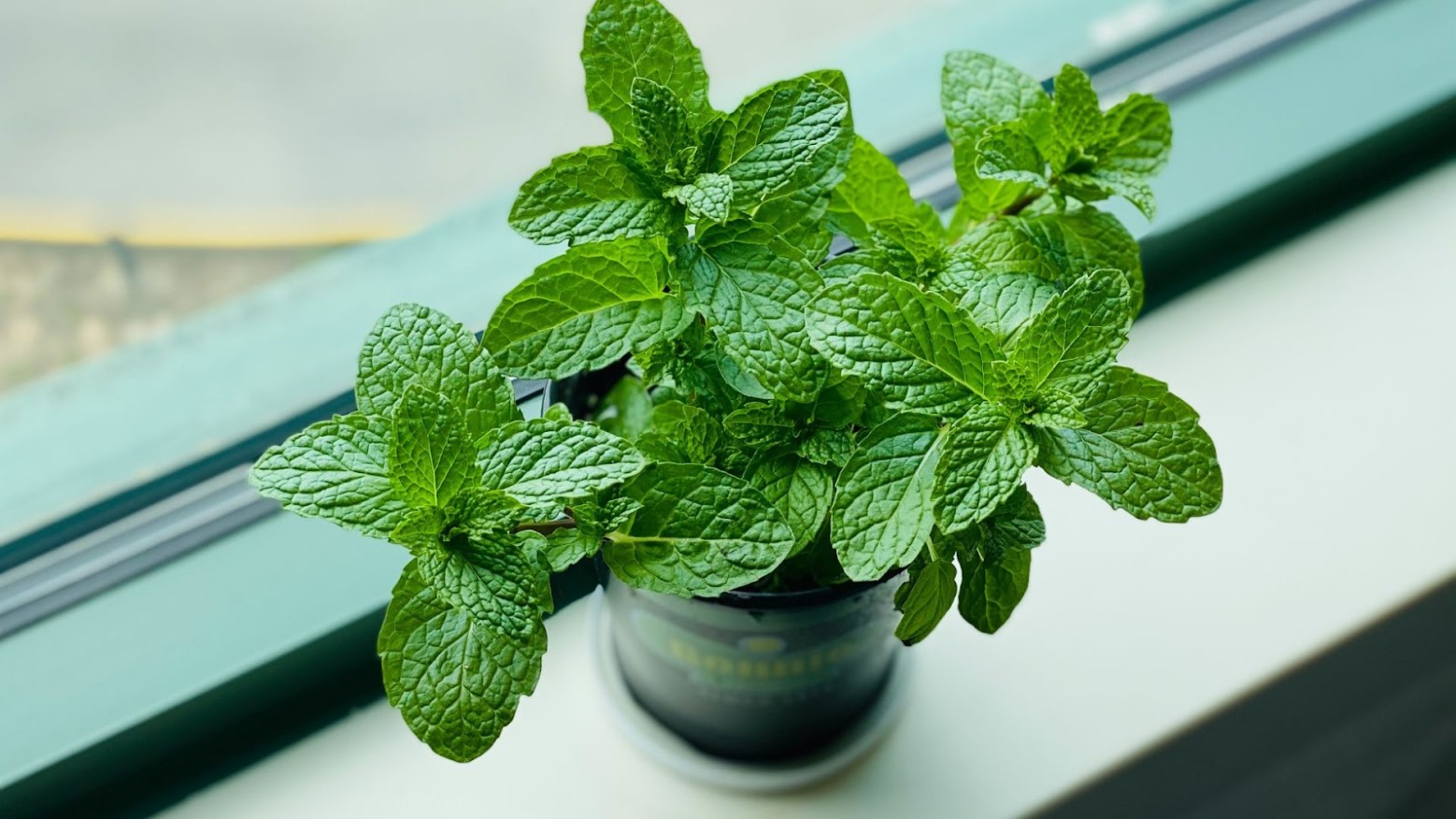
One of the best things about mint is all the essential nutrients the tiny herb leaves have naturally. Mint contains Vitamin A and Vitamin C. However, it also has quantities of folate, iron, and manganese.
Vitamin A can help maintain and improve your vision. Meanwhile, Vitamin C can help boost your immune system, which can therefore help you fight off sicknesses more easily.
Aids Digestive System

Traditionally, mint has been used to help combat a slew of health issues. For a very long time, many cultures and peoples used mint to aid in digestive problems. Today, mint remains a wonderful remedy for those suffering from stomach pains or irritable bowel syndrome (IBS).
Specifically, peppermint oil can help relieve stomach cramps, flatulence, bloating, and other digestive issues.
Can Fight Cancer
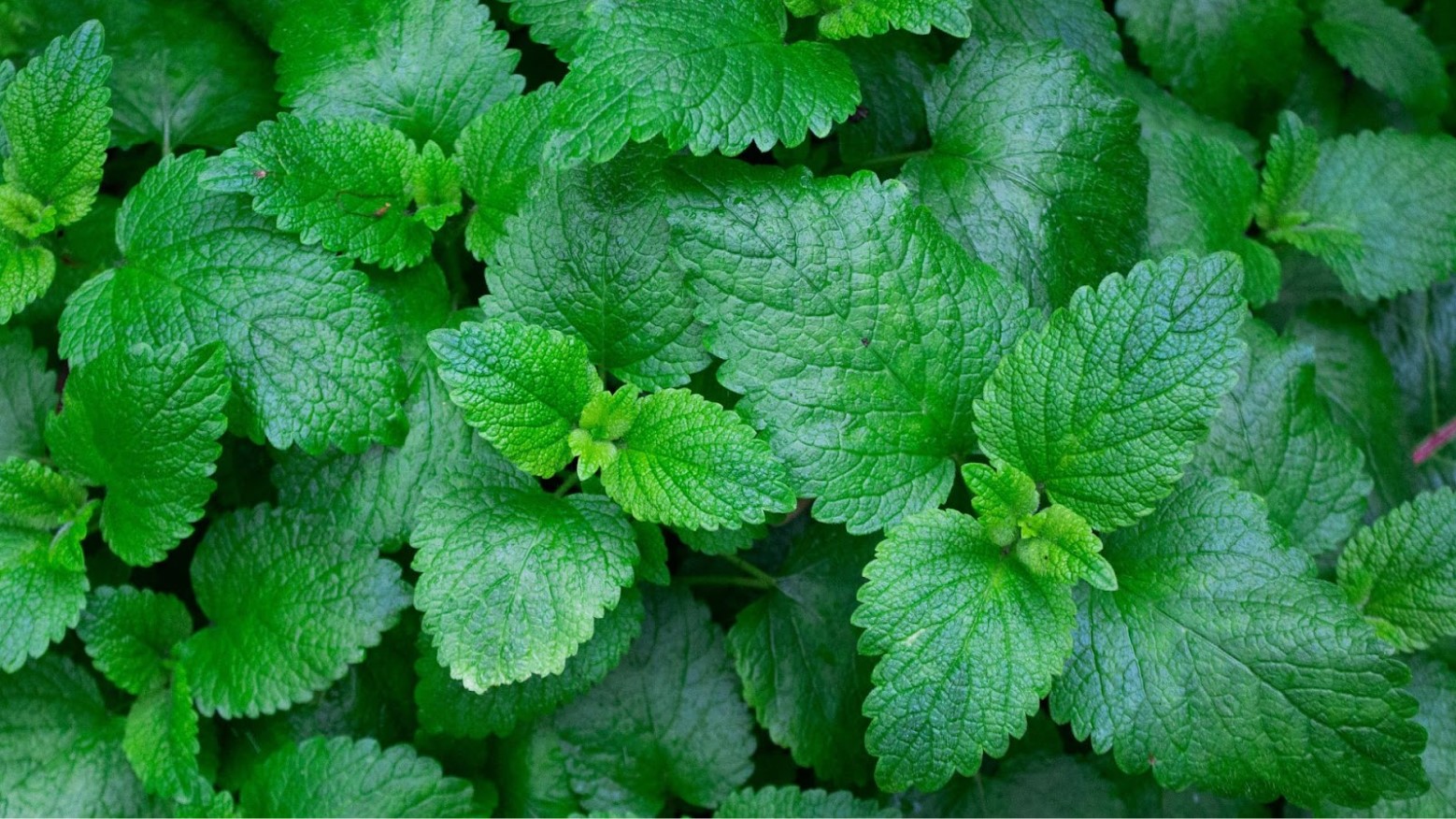
Recently, new studies have come out that suggest menthol, an extract of the mint plant, can help fight and kill harmful cancer cells. These studies have also shown that it can help fight solid tumors.
Therefore, just by using mint, you could be helping your body fight dangerous cancer cells over time. Though more studies will likely be needed to understand if menthol fights all cancer cell types, the fact that it can help your body in this way alone is greatly beneficial.
Can Reduce Stress
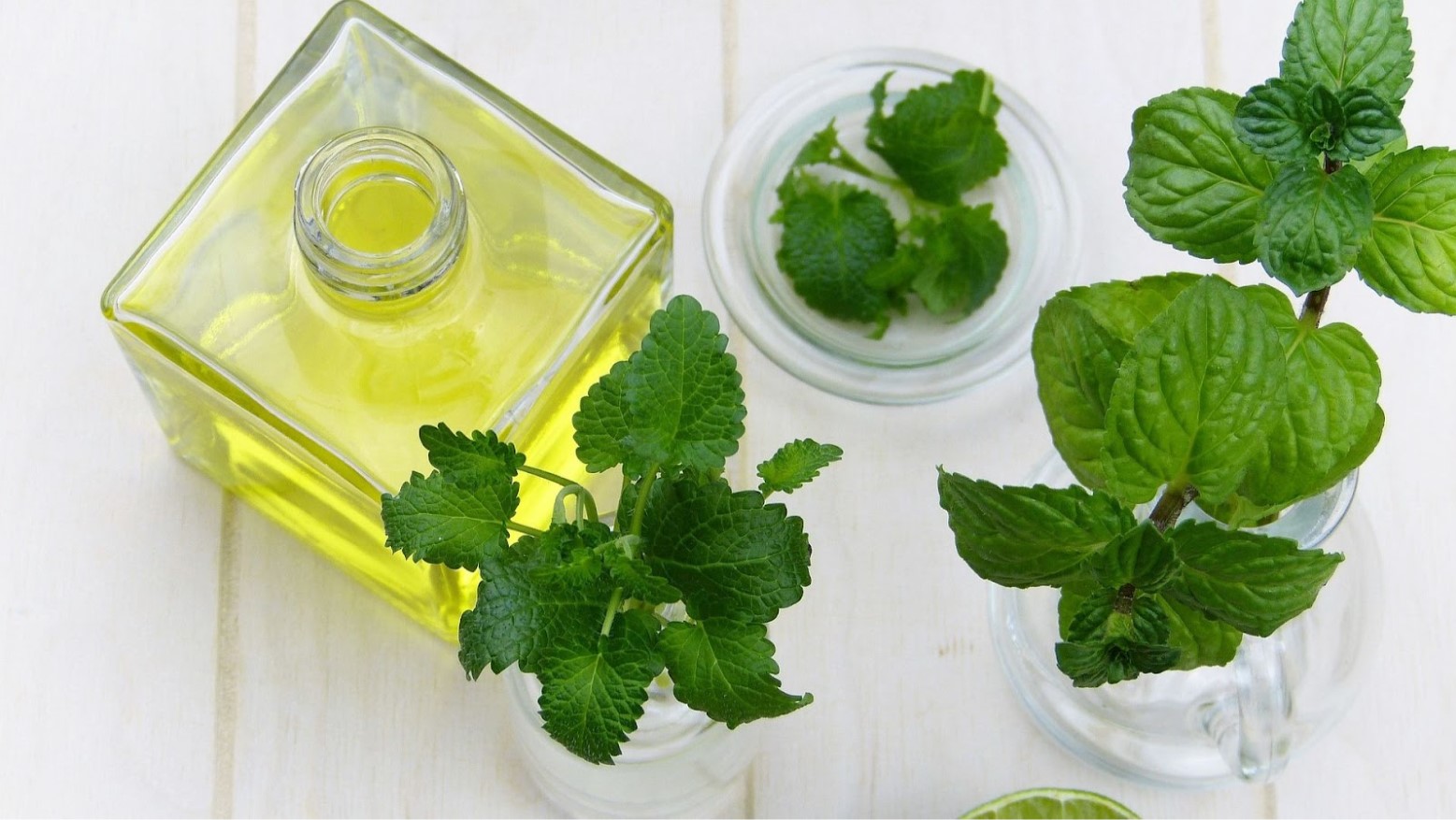
Mint has been used traditionally in various ways over the centuries. In the past, it was used to help reduce stress and help people calm down.
Modern-day studies concur with this old worldview. While one study reveals that simply inhaling a peppermint smell can reduce anxiety in heart attack patients, another shows that inhaling a minty smell can decrease anxiety and fatigue while driving.
Improves Brain Function

Inhaling a mint aroma can also help improve brain function and one’s overall cognitive system. As a result, mint can help improve your reasoning, attention span, and memory.
This might not come as a surprise if you’ve often heard that mint can boost your brain power. While more studies need to be done on this, studies conducted thus far show that mint is greatly beneficial to your general brain health.
Helps Lessen Cold Symptoms
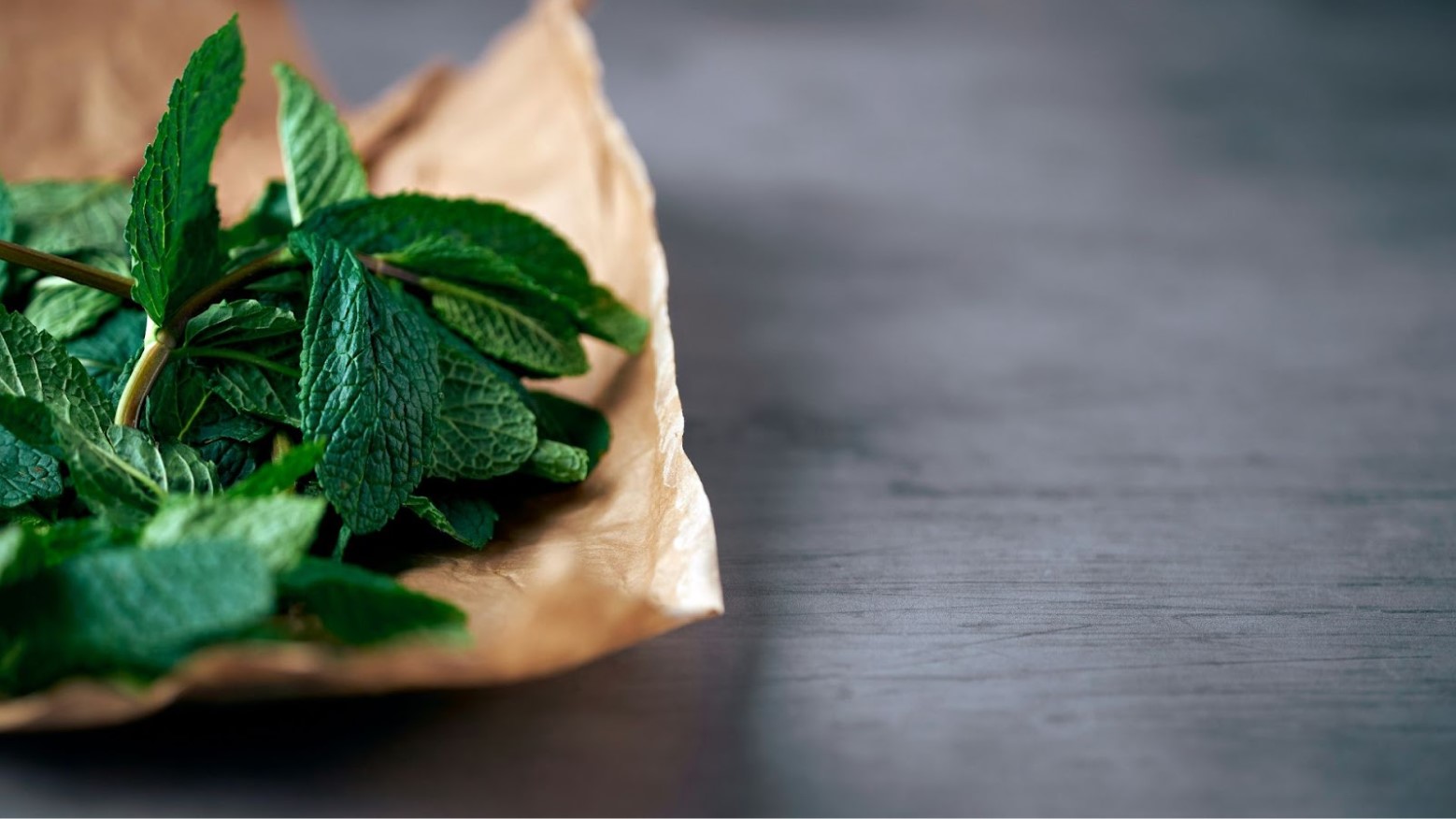
Many people may not be aware that various over-the-counter cold medicines contain menthol. Menthol has been shown to help people improve their breathing and airflow, especially when they’re congested and sick.
As a result, mint can help lessen cold symptoms related to congestion. While some studies say that there is no difference in congestion before and after menthol use, others differ and say it can help. Once again, more studies on this herb will likely be needed.
Helps Manage Allergies

As mint can help someone who is congested, it can also aid those who have allergies or asthma and are looking for a way to breathe easier.
Mint is naturally anti-inflammatory. This property of the herb allows it to help reduce pain and swelling one may get in their throat when going through an allergic reaction or asthma attack.
Improves Oral Health
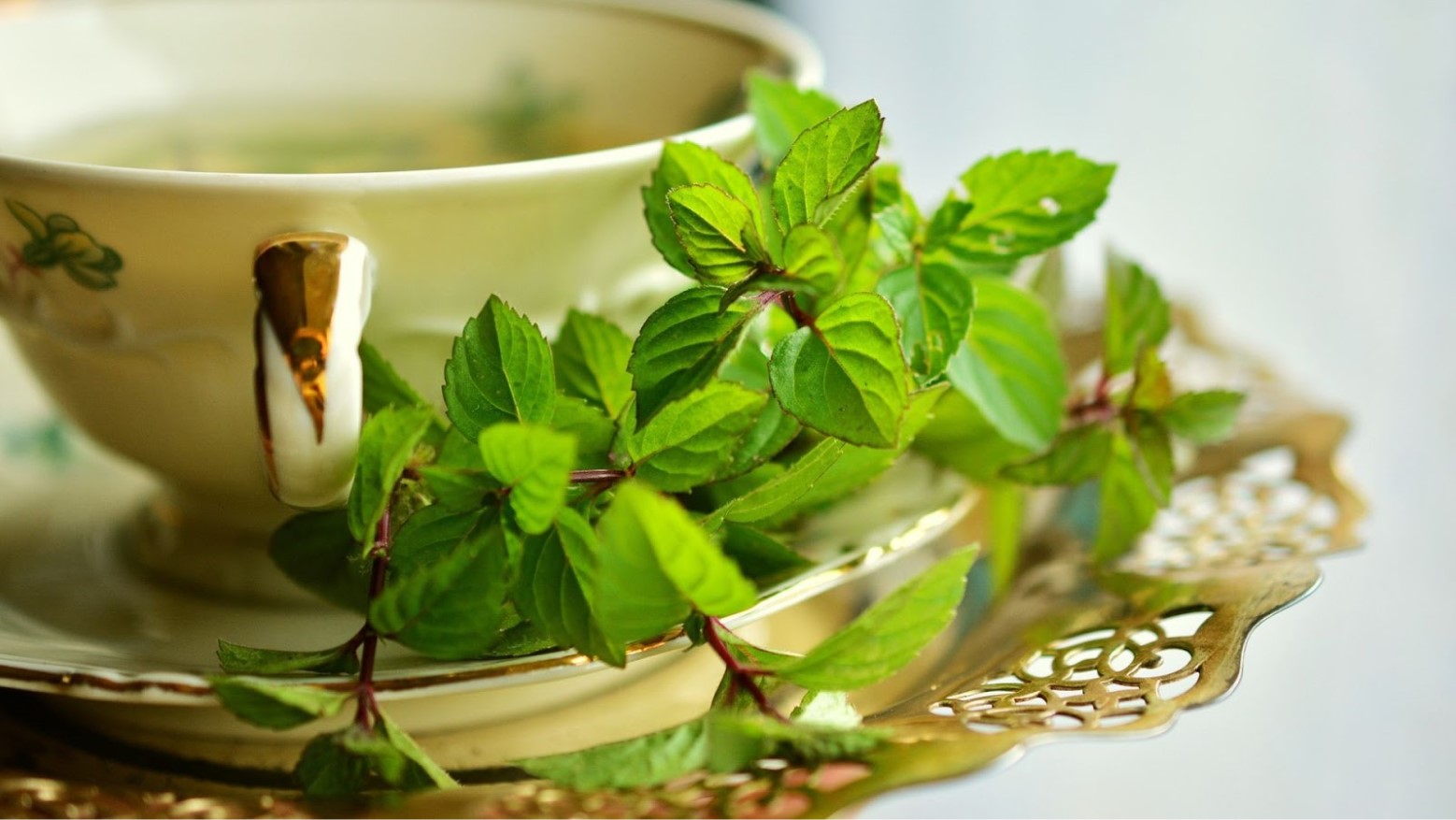
So many of our most common toothpaste brands use mint in their ingredients. This is because mint truly helps with overall oral health, as it can fight harmful bacteria in your mouth. As many of us know well, it can also leave your breath feeling fresh.
Traditionally, many people have chewed on mint leaves to help with oral health. This can help to naturally improve gum and teeth health.
Helps with Skin Health

Mint can aid with digestive and oral health — but it can also help when applied topically to your skin. Mint naturally soothes your body and your skin, as it has antioxidant properties.
When applied topically to your skin, or when mixed into your skincare products, you can help soothe irritated parts of your skin. Mint can also leave your skin feeling — and looking — very refreshed.
How to Add Mint to Your Food

To gain the best benefits from mint, you can inhale the essence of a mint plant or mint oil, as well as apply it topically to your skin. However, you can also ingest mint to get ample health benefits.
There are many ways to add mint to your diet. Mint tea is a great way to do this. Adding mint to salads and sauces is also a great option.
A Warning about Some Negative Symptoms

Though mint can be quite valuable when added to your diet, it can sometimes bring about negative symptoms. Everybody reacts differently to mint, and some may be allergic to this herb. Use of mint may also increase symptoms for those who suffer from heartburn or acid reflux.
Finally, overconsumption in some people can lead to health issues. If you have certain medical conditions, you should always talk with your doctor before adding mint to your diet. However, in most people, moderate intake of mint can be quite beneficial.








































